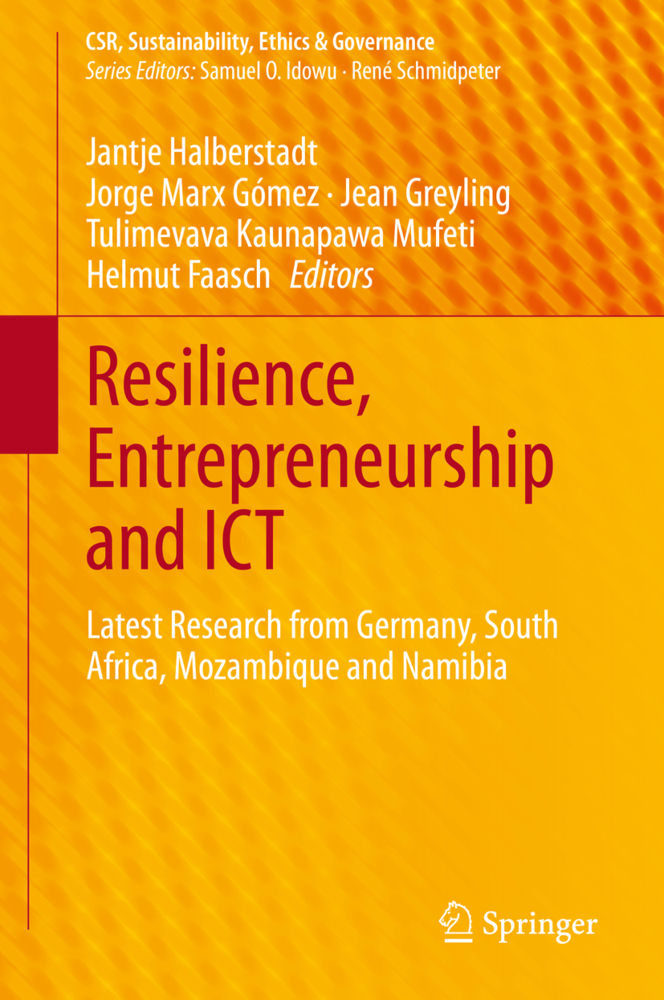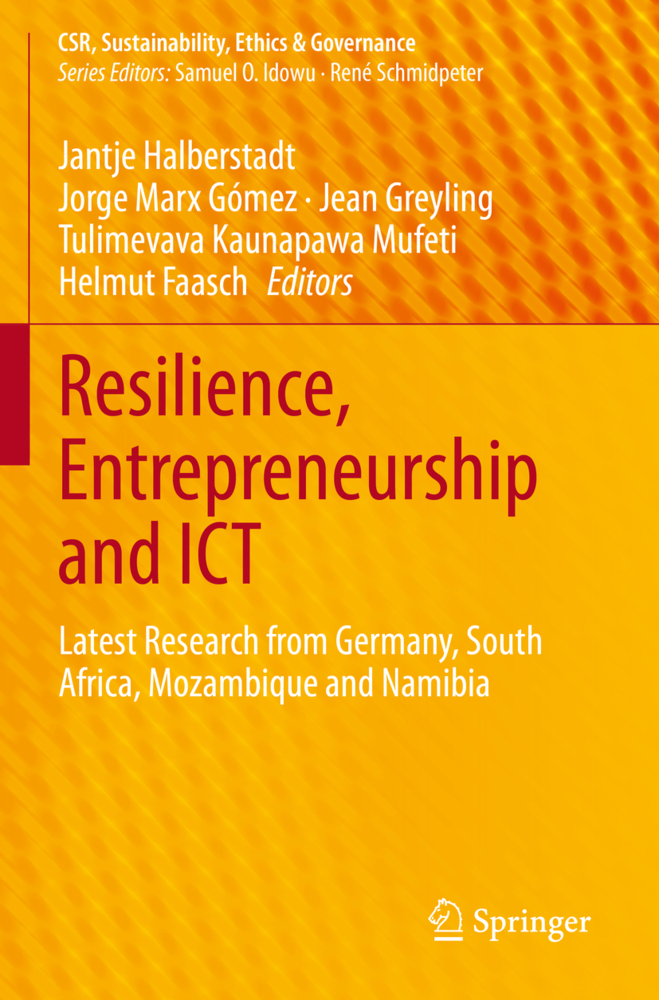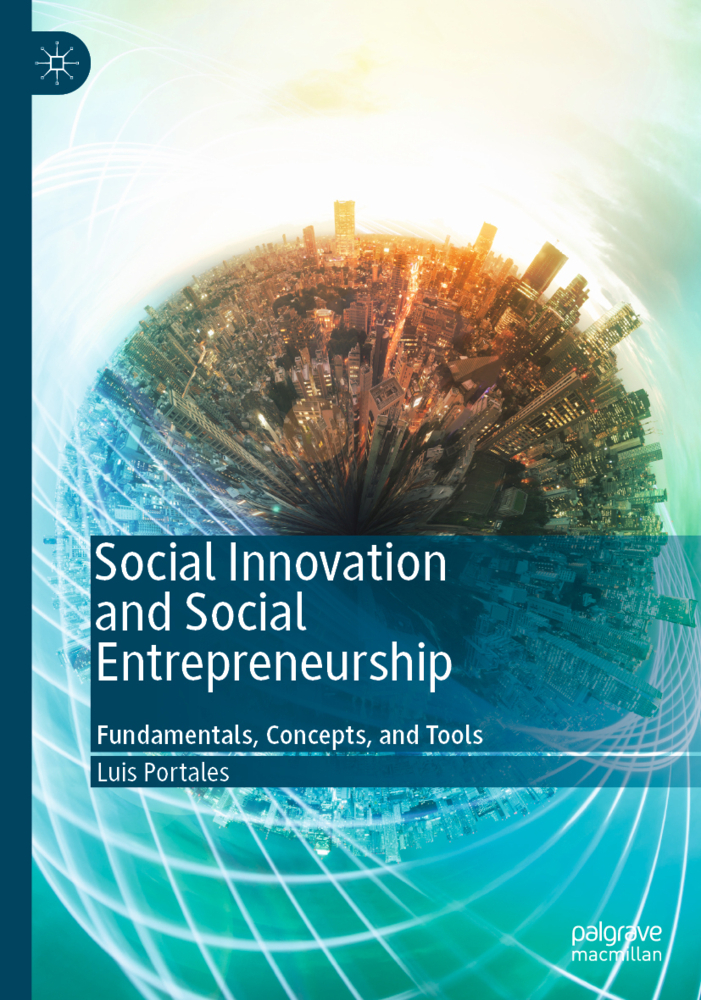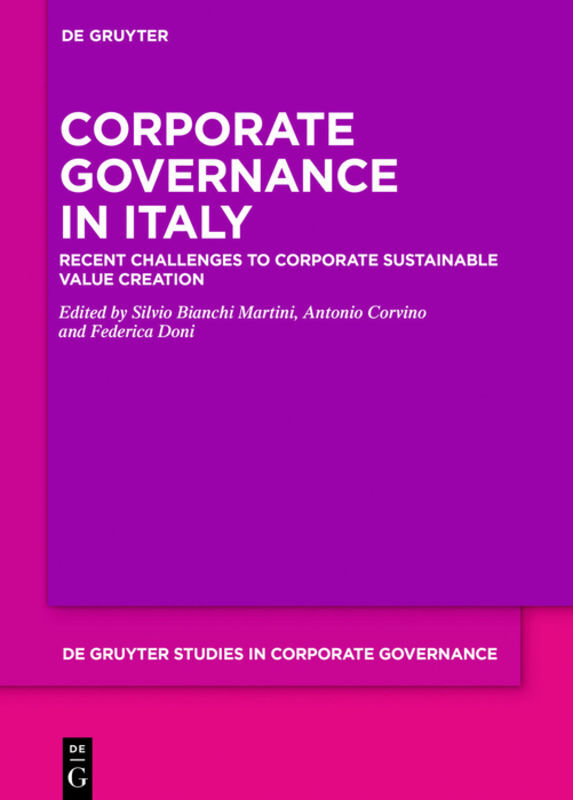Resilience, Entrepreneurship and ICT
This book is based on the work of the YEEES Research Centre, an international network of scientists from partner universities in Germany, Mozambique, Namibia and South Africa. It presents inter- and transdisciplinary research that explores different ways of understanding resilience, an essential characteristic for systems, organizations and people - providing them with strength in the face of attacks and challenges, and both enabling and fostering constant adaptation and improvement.
Building resilience to face today's ever-changing societal and environmental realities requires unbiased research activities that transcend the borders of countries and academic disciplines alike. The research addressed in this book, thus, is multidisciplinary and includes contributions to areas such as sustainable agriculture, entrepreneurial ecosystems, and smart communities, as well as groundbreaking work on skills development and ICT education. Highlighting the variety of research activitiesand their outcomes, this book offers a valuable resource for researchers and practitioners in the fields of sustainable resilience development.
Section A. Resilience and Entrepreneurial Activities
Chapter 1. How to make entrepreneurs strong - Introducing a framework for research on entrepreneurs' resilienceChapter 2. Toward a Framework for University-based Entrepreneurial Ecosystems and Human Capital Development in Sub-Saharan Africa
Chapter 3. Innovative Digitalization Initiatives for Smart Communities and Cities in a Developing Country
Chapter 4. An Exploratory Study of the Development Practices Used by Software Entrepreneurs in Namibia
Section B. Resilience through Learning and Teaching
Chapter 5. TANKS - a tangible programming tool to introduce children to coding through fun problem solving activities
Chapter 6. Use of augmented Reality Mobile Devices to Support Teaching and Learning Agriculture and Livestock Students
Chapter 7. Developing an ERP Skills Program to Build ICT Capacity for Disadvantaged South African Youths
Section C. Resilience in Smart Communities
Chapter 8. Identifying Stakeholder Value in Smart City Implementation in Nelson Mandela Bay Municipality
Chapter 9. Smart Communities ICT responses to Covid-19 in the South African Smartest City. A Resilient Approach to Social Solidarity through Physical Distancing
Chapter 10. Organisation of urban farmers and urban food resilience: What can we learn from the experiences of Cape Town and Dar es Salaam?
Chapter 11.Smart Energy Sharing in a German Living Lab From Participation to Business Model
Chapter 12. How to Measure Safety Risks for Cyclists at Intersections?.- Section D. Resilience through the Smart Use of Resources
Chapter 13. Geographic Information System for forecast and control of soil erosion. Case study: Marmanelo and Caminhos de Ferro de Moçambique Neighbourhoods in the city of Mocuba
Chapter 14. Digitalization of Groundwater Monitoring Points using LoRaWAN
Chapter 15. Developing an Environmental Information Portal for Various User Groups
Chapter 16. A Deep Learning approach to Classifying Tyres Using Sidewall Images
Chapter 17. A Backup Model: (QoS guaranteed and Less Consumed Energy) for Cloud SDN Using Neural Networks
Section E. Resilience through Culture
Chapter 18. Social Network Platforms and the Oshiwambo Practice of Eengano
Chapter 19. An Investigation of E-Government Web Accessibility for Visually Impaired Persons in Namibia.
Halberstadt, Jantje
Marx Gómez, Jorge
Greyling, Jean
Mufeti, Tulimevava Kaunapawa
Faasch, Helmut
| ISBN | 978-3-030-78940-4 |
|---|---|
| Artikelnummer | 9783030789404 |
| Medientyp | Buch |
| Copyrightjahr | 2021 |
| Verlag | Springer, Berlin |
| Umfang | XXXIII, 420 Seiten |
| Abbildungen | XXXIII, 420 p. 114 illus., 70 illus. in color. |
| Sprache | Englisch |











